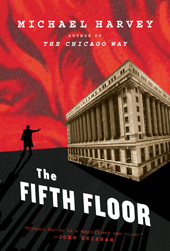"Kathryn Walker's beautifully written story of parallel discovery and restoration is powered by searing insights into the costs of love and loss...The results are joyous."
—Amy Hempel, author of Reasons to Live and The Dog of the Marriage
A Stopover in Venice is an enchanting debut novel—a fairy tale of sorts.
The time is the present. The novel opens on a train en route to Verona. A young American woman is on an Italian tour with her famous musician husband. In a moment of fury and despair at their lifeless marriage, she drags down a piece of her luggage and gets off the train in the countryside. Marooned and on her own for the first time in eight years, she returns to Venice, gets a room at the Hotel Gritti Palace, sets out to explore the city, and chances on a group of boys tormenting a small dog, which she rescues and smuggles into the hotel.
The following day she is accosted by a man who claims that the dog belongs to his employer. Reluctantly she follows him to a Gothic palazzo and to the dog's owner, an elderly contessa. The young woman becomes faint. The contessa insists that she stay the night...
What started off as an impulsive act of defiance opens out into an adventure—and a mystery—that summons up centuries of the Venetian past, the discovery of a lost masterpiece, and the heroine's reclamation of herself.
An excerpt from A Stopover in Venice:
Watching the train roll out of the station, picking up speed, it occurred to me that I had been impetuous. Disappearing down the track, within that train, were the only human beings of my acquaintance in northern Italy—in all of Italy, for that matter, if you didn't count Guido, the ingratiating concierge briefly known at our hotel. My husband and his band of not entirely merry men were speeding away to Verona, to Milano, to Bologna, on and on until they would arrive in Roma, the Eternal City, in several weeks' time.
And where was I?
There was no sign that I could see on the narrow platform. It was, I think, the second stop the train had made since leaving Venice. Venezia the beautiful, the sinister, the enchanting city of water and light. Venice, the place I had not remotely experienced in the days I had just spent there. That's how the argument must have started. My regrets. My regrets dismissed and so on, until I found myself there, outside the train.
And the argument? I couldn't remember. It hardly mattered, whatever it was, it was the same thing. It's true, isn't it, that the long dispute that is marriage, for the unlucky anyway, loses its energy after a few years of failing to reveal much to anyone? It loses its optimism, its hope of revelation; the whole thing dissolves into a miasmic pall, a kind of weather. A miserable way to live. The damp penetrates the spaces between, then gathers and rains down the usual resentments, barely spoken, of no particular interest to anyone. Neither party seems to retain much apparent hope or regret, and that in itself is unbearable. So I couldn't remember how it started, the blank amnesia of low-level numb despair brought on by these events. We spoke probably; few words are necessary. I do remember the familiar sensation of gloom rising and the awful visceral sense of entrapment that I feel in that sullen climate, as if my body is trying to conceal itself in back of itself. Also the certain knowledge that there would be no help found in the present company. Encircling doom. I would sit in a bitter fog for however long it took to get to Verona. Lovely Verona, no doubt. Encountered in misery. One more unexperienced destination.
Then something unusual happened. I stood up, stepped over my husband's long legs, not particularly carefully, dragged down whatever piece of my luggage was stashed above our seats, and got off the train.
Keep reading this excerpt
Order your copy online
| 

 THE FIFTH FLOOR
THE FIFTH FLOOR TRAIN TO TRIESTE
TRAIN TO TRIESTE DRY STOREROOM NO. 1
DRY STOREROOM NO. 1 THE GOOD THIEF
THE GOOD THIEF AUGUST NEW RELEASES
AUGUST NEW RELEASES FEATURED EXCERPT: A STOPOVER IN VENICE
FEATURED EXCERPT: A STOPOVER IN VENICE
 Dear Readers,
Dear Readers,